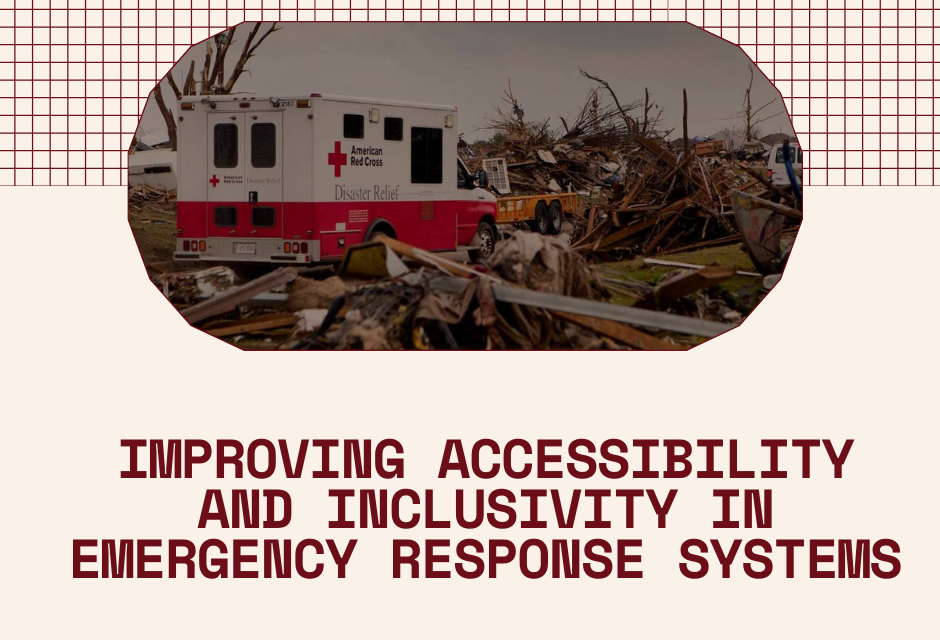The recent tornadoes that have devastated towns in Texas highlight the urgent need for improved accessibility in emergency response systems. Deaf individuals in these areas have faced significant challenges in receiving timely alerts and accessing emergency services, exacerbating the dangers posed by such natural disasters. This tragedy underscores the critical importance of ensuring that all emergency communication is accessible to everyone, regardless of their hearing ability. Situations, such as natural disasters, public health crises, and other urgent incidents, require swift and effective communication. Unfortunately, emergency response systems often lack adequate accessibility features for the Deaf and hard-of-hearing communities. This can result in delayed responses, misunderstandings, and increased risk for Deaf individuals during emergencies
Key Issues
- Lack of Accessible Communication: Many emergency alert systems do not provide information in American Sign Language (ASL) or other sign languages, nor do they offer captioned or text-based alerts.
- Emergency Services Communication Barriers: Deaf individuals often face challenges when contacting emergency services. Many 911 systems are not equipped to handle text or video calls, which are crucial for effective communication for the Deaf community.
- Disaster Preparedness and Response: Emergency preparedness plans frequently overlook the specific needs of the Deaf community, leading to inadequate support during evacuations, shelter stays, and recovery efforts.
Call to Action
- Advocate for Policy Changes: Urge local, state, and federal governments to implement policies that require emergency alert systems to include ASL videos, captioned messages, and text alerts. Support legislative efforts that mandate these changes.
- Support Technology Upgrades: Push for the adoption of technologies that enable text and video communication with emergency services. Encourage investment in infrastructure that can handle these types of communication efficiently.
- Community Education and Training: Promote the importance of emergency preparedness within the Deaf community. Organize workshops and training sessions on how to use available emergency response tools and resources effectively.
- Collaborate with Emergency Services: Work with emergency service providers to develop and implement protocols that address the needs of the Deaf community. Ensure that first responders receive training on how to interact and communicate with Deaf individuals during emergencies.
- Raise Awareness: Use social media, community events, and public forums to raise awareness about the challenges faced by the Deaf community in emergency situations. Share stories and experiences to highlight the urgency of the issue.
How to Get Involved
- Join Advocacy Groups: Participate in organizations and advocacy groups that focus on improving accessibility for the Deaf community.
- Contact Legislators: Write to or call your local representatives to express the need for more inclusive emergency response systems.
- Support Relevant Legislation: Stay informed about legislation related to emergency response and accessibility. Support and advocate for bills that aim to improve these systems.
- Engage with Community Leaders: Work with community leaders to develop local initiatives that enhance emergency preparedness and response for the Deaf community.
By focusing on this critical issue, the Deaf community can work towards ensuring that all individuals have equal access to life-saving information and services during emergencies.






